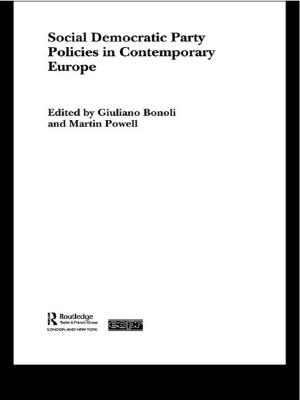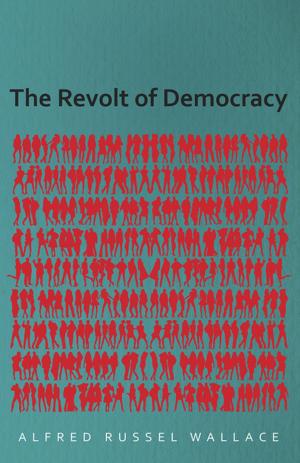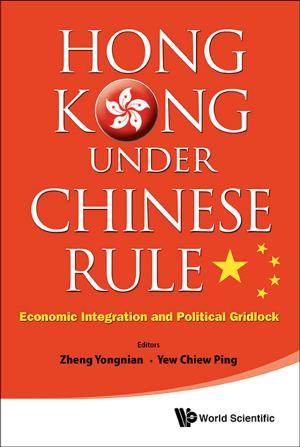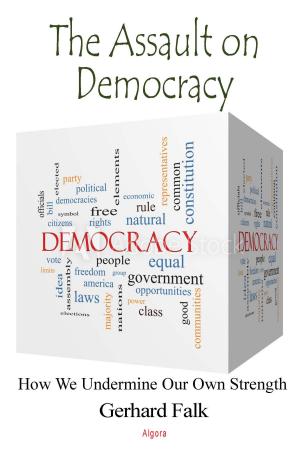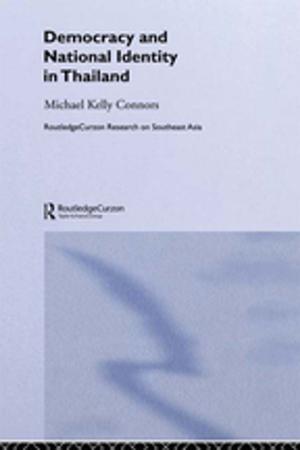Uncle Sam as Globocop: Immanuel Kant, Comparative War Aggression, and the Travails of America's Pax Democratica
Nonfiction, History, Military, Other, Social & Cultural Studies, Political Science, Government, Democracy| Author: | Gregory Larkin | ISBN: | 9781370259052 |
| Publisher: | Gregory Larkin | Publication: | December 10, 2016 |
| Imprint: | Smashwords Edition | Language: | English |
| Author: | Gregory Larkin |
| ISBN: | 9781370259052 |
| Publisher: | Gregory Larkin |
| Publication: | December 10, 2016 |
| Imprint: | Smashwords Edition |
| Language: | English |
Uncle Sam as GloboCop examines the issues of imperialism, war aggression, and peace from a Kantian perspective in seven chapters. Chapter One posits that the most important factor for the decline in war aggression since 1945 has been the spread of democracy to a majority of the world, both under American auspices and via independent reforms, and not the threat of nuclear weapons. Chapter Two focuses on the reality of pan-democratic pacifism, particularly the ideas posited in Kant’s Perpetual Peace, which are critically evaluated in regard to the rise and retreat of democratic imperialism. Democracies in the 19th century utilized only mercenary militaries to partake in a global imperialist binge and establish vast colonial empires. Yet, the extensive use of conscription in democracies in the 20th century profoundly restrained the use of such armed forces in optional imperialist conflicts and ultimately obliged the complete retreat from empire. The specific cases studies are Britain in the Boer War and Ireland, France in Indochina and Algeria, and the United States in Vietnam. Chapter Three empirically demonstrates that autocracies have manifested much greater propensity for war aggression, especially with mass-conscripted militaries, than democracies. This is true in the only two cases of autocratic imperialism in the periphery (Japan in East Asia and Portugal in Africa), and the much more dangerous cases of major war since 1789: The Napoleonic Wars, Crimean War, Franco-Prussian War, World War I, World War II, and the Korean War. Autocracies have been the only initiators of major war aggression whereas democratic great powers have shown nothing but “great hesitation” in the face of major war. Chapter Four examines how America forged its strong international alliances with almost all of the world’s democracies, especially NATO in Europe which has been essential for maintaining a stable peace based on a type of Kantian “Federation of Free States.” American hegemony is founded upon being the world’s key democratic superpower alliance partner and is an enduring condition that almost all other democracies are bandwagoning with which discredits any notions of America's purported “relative decline.” Chapter Five addresses the political implications of persistent dictatorship in the two remaining cases of great power autocracies: Russia and China. Leninism has trumped Marxism in terms of demonstrating that political factors can supersede economic factors in determining who rules. The coercive proficiency of these Leninist dictatorships in resisting any impetus towards democratization means that threats of Russia and China will remain the most significant obstacles to international peace and stability. Chapter Six assesses the two most destabilizing problems that countries confront in their transitions to democracy which are (1) overcoming the pronounced danger of demagogues in newly founded democracies, and (2) the abuses of power in stunted democratic polities when sectarian forces gain political supremacy and sustain themselves in power via rampant persecution such as in the Jim Crow American South, French Algeria, Apartheid in South Africa, the Orange Order in Northern Ireland, and finally Zionism in Palestine. Chapter Seven proposes three key lessons that can be deduced from American military “overextension” in Asia – the Vietnam War and the Iraq War. The most notable lesson is that building mutual solidarity with other democratic states has proven to be of far greater enduring utility for promoting American strategic interests than the much more problematic task of trying to use the American military to turn dictatorships into democracies. The historical record clarifies that when democracies demonstrate “great hesitation” in using their armed forces, this is not a sign of weakness but rather the essential basis of the patient fortitude that has proven to be vital to long-term success such as winning the Cold War.
Uncle Sam as GloboCop examines the issues of imperialism, war aggression, and peace from a Kantian perspective in seven chapters. Chapter One posits that the most important factor for the decline in war aggression since 1945 has been the spread of democracy to a majority of the world, both under American auspices and via independent reforms, and not the threat of nuclear weapons. Chapter Two focuses on the reality of pan-democratic pacifism, particularly the ideas posited in Kant’s Perpetual Peace, which are critically evaluated in regard to the rise and retreat of democratic imperialism. Democracies in the 19th century utilized only mercenary militaries to partake in a global imperialist binge and establish vast colonial empires. Yet, the extensive use of conscription in democracies in the 20th century profoundly restrained the use of such armed forces in optional imperialist conflicts and ultimately obliged the complete retreat from empire. The specific cases studies are Britain in the Boer War and Ireland, France in Indochina and Algeria, and the United States in Vietnam. Chapter Three empirically demonstrates that autocracies have manifested much greater propensity for war aggression, especially with mass-conscripted militaries, than democracies. This is true in the only two cases of autocratic imperialism in the periphery (Japan in East Asia and Portugal in Africa), and the much more dangerous cases of major war since 1789: The Napoleonic Wars, Crimean War, Franco-Prussian War, World War I, World War II, and the Korean War. Autocracies have been the only initiators of major war aggression whereas democratic great powers have shown nothing but “great hesitation” in the face of major war. Chapter Four examines how America forged its strong international alliances with almost all of the world’s democracies, especially NATO in Europe which has been essential for maintaining a stable peace based on a type of Kantian “Federation of Free States.” American hegemony is founded upon being the world’s key democratic superpower alliance partner and is an enduring condition that almost all other democracies are bandwagoning with which discredits any notions of America's purported “relative decline.” Chapter Five addresses the political implications of persistent dictatorship in the two remaining cases of great power autocracies: Russia and China. Leninism has trumped Marxism in terms of demonstrating that political factors can supersede economic factors in determining who rules. The coercive proficiency of these Leninist dictatorships in resisting any impetus towards democratization means that threats of Russia and China will remain the most significant obstacles to international peace and stability. Chapter Six assesses the two most destabilizing problems that countries confront in their transitions to democracy which are (1) overcoming the pronounced danger of demagogues in newly founded democracies, and (2) the abuses of power in stunted democratic polities when sectarian forces gain political supremacy and sustain themselves in power via rampant persecution such as in the Jim Crow American South, French Algeria, Apartheid in South Africa, the Orange Order in Northern Ireland, and finally Zionism in Palestine. Chapter Seven proposes three key lessons that can be deduced from American military “overextension” in Asia – the Vietnam War and the Iraq War. The most notable lesson is that building mutual solidarity with other democratic states has proven to be of far greater enduring utility for promoting American strategic interests than the much more problematic task of trying to use the American military to turn dictatorships into democracies. The historical record clarifies that when democracies demonstrate “great hesitation” in using their armed forces, this is not a sign of weakness but rather the essential basis of the patient fortitude that has proven to be vital to long-term success such as winning the Cold War.


